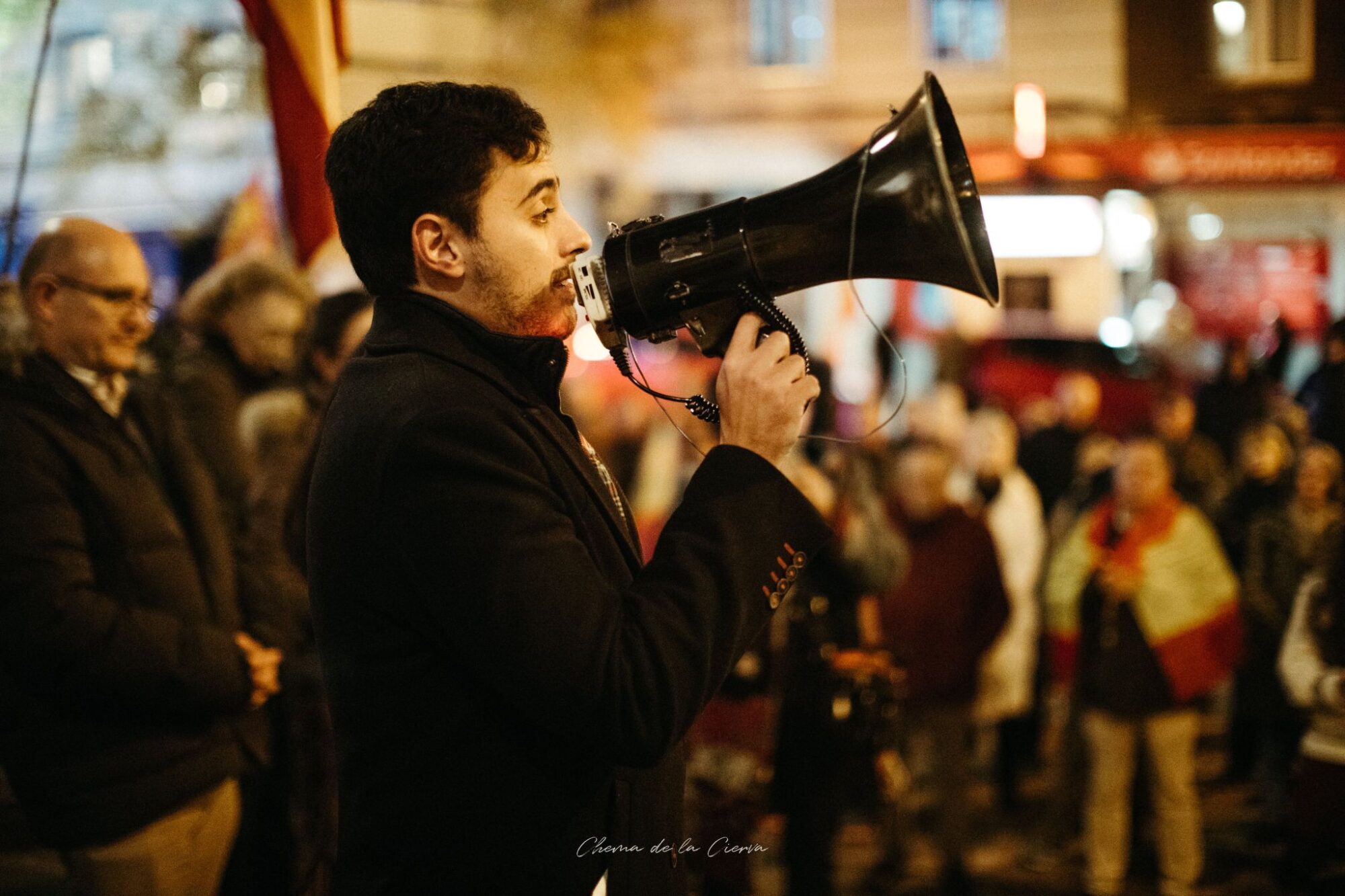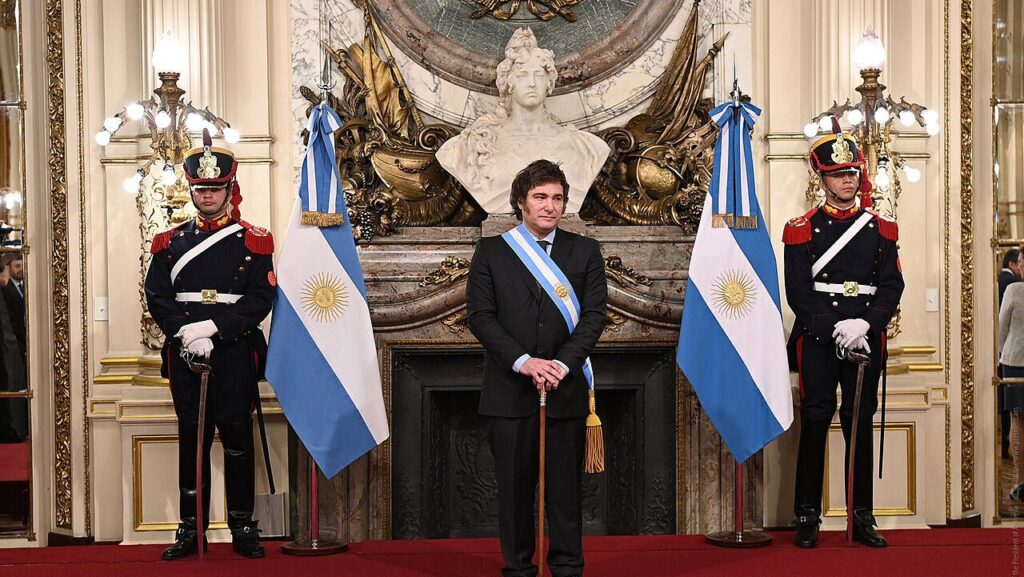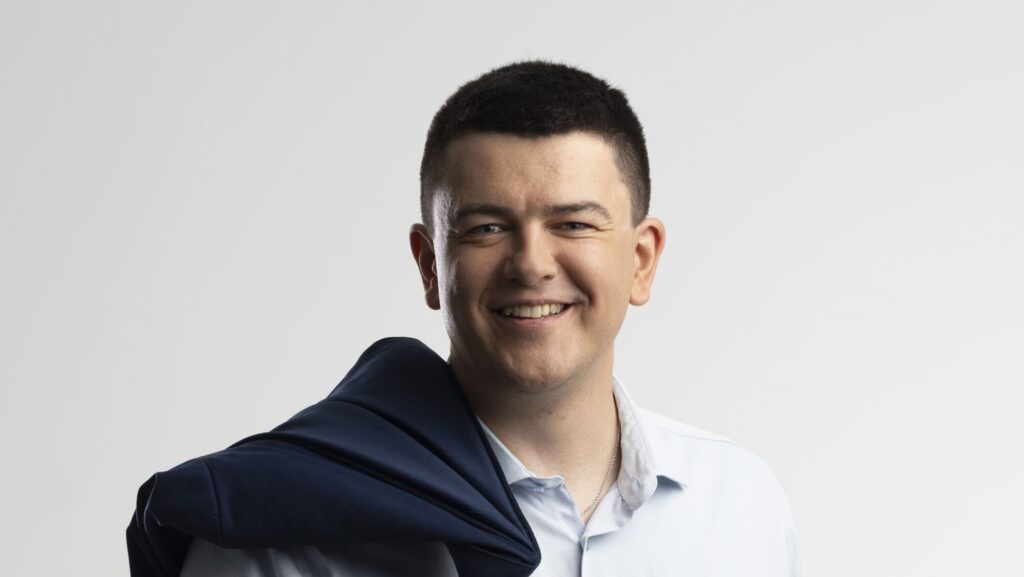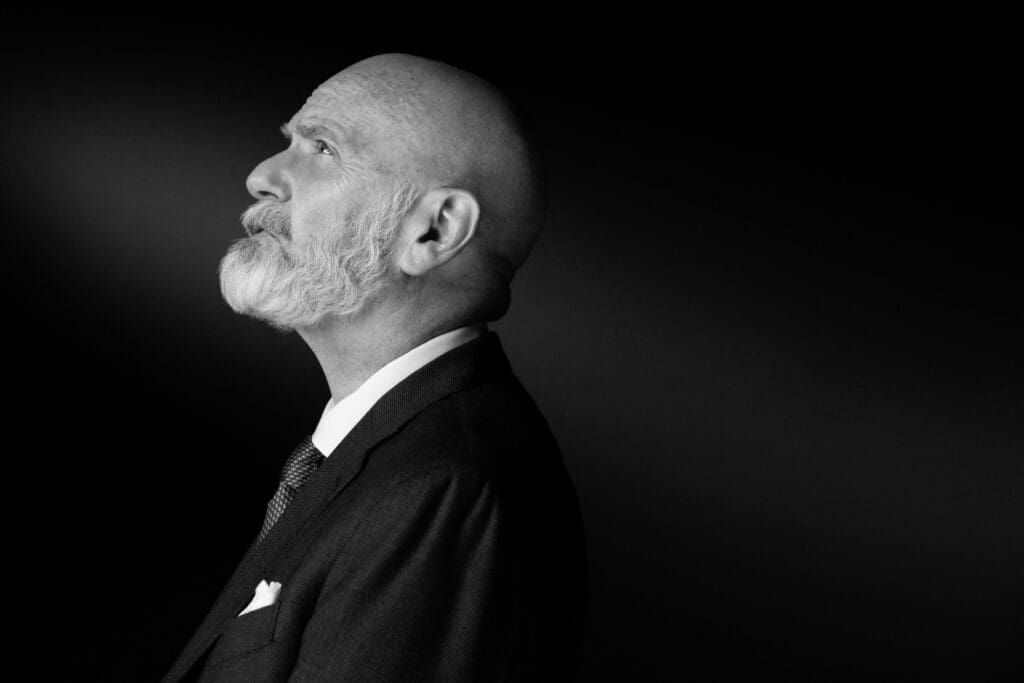José Andrés Calderón is a young man from Madrid. He has become famous for praying the rosary in the Ferraz Street demonstrations against the amnesty of Catalan separatists agreed to by the Socialist party, part of a protest movement called ‘Noviembre Nacional’ (National November).
What is ‘National November’?
National November is a transversal movement including people of different thoughts and ideologies, from conservative liberals to reactionaries, Carlists, Falangists, etc.—all those who are against a regime that has been marginalizing and destroying the idea of Spain for decades. What now governs us is an oligarchy of parties that, instead of seeking the common good, only wants to enrich itself and promote its ideological agenda. The amnesty was the straw that broke the camel’s back and made many people say that enough is enough. For that reason, although different slogans are being chanted, there is a shared fundamental idea that Spain is above everything, even the constitution and the monarchy, and that this exceptional situation demands an immediate response. There are also flags of the Sacred Heart, shouts such as “Christian and non-Muslim Spain,” and the cross in the symbol of National November. In a somewhat disorganized way, National November is a search for the roots from which we have been stripped. Amnesty is a territorial danger for the unity of Spain, but it is also a spiritual and moral danger.
How did the idea of praying in Ferraz develop?
On Friday, November 3, the protest began, but it was on November 6, when the police gassed the demonstrators, that the explosion took place. At that time, there was no prayer, but there were flags of the Sacred Heart of Jesus and a longing for God. It was on social networks—which have had a huge impact on everything that has happened in Ferraz—that the possibility of praying a rosary was suggested, and that is how it started. They asked me to do it because I am quite active on social networks; then they gave me a megaphone, and we got started. At the beginning, there were only twenty or thirty of us, and little by little more people joined. Every political battle has a religious context because, as Donoso Cortés said, “In every political question there is a theological question involved.” Pedro Sánchez and all those who govern us, nationally and internationally, promote a secular religion, a substitute religion for the Catholic religion.
We have to say openly that we are living through a persecution against Catholics. There is physical repression, and one can be sentenced to up to a year in jail for praying in front of an abortion clinic. But there is another, more silent persecution that aims to lock us in our homes and temples to pray—one that pretends that being a Christian only means going to church to pray.
Has that happened because many people in the Church have decided not to fight?
Absolutely. Not the whole Church, of course, because there are priests who fight hard; but, at the institutional level, the Church has become comfortable and has fallen prey to the IRPF box. It has assumed the logic of the system itself and has, out of fear or ignorance, turned religion into just another sphere of life. But a Catholic is not only a Catholic when he goes to Mass—he is Catholic in all areas of his life: in public life, in the family, in his work, etc. And one misses the support of the ecclesiastical hierarchies when Catholics are fined or persecuted for manifesting their faith, just as those authorities remain practically silent after the Constitutional Court’s ruling on the abortion law or when Pedro Sánchez passes a law on euthanasia, and regarding other openly anti-Christian laws.
Is this partly a consequence of taking refuge in the spiritual and not ‘being in the world’?
Yes, because, in the end, a Catholic must have his feet on the ground and know where he is—that is, we Catholics have the duty to participate in public life. We cannot pretend to put an end in a few days to all the ideological laws that have been imposed for decades, but little by little, we must fight to turn this situation around. What is at stake is not merely a Spanish problem, but a problem for the whole West because they want to build a civilization without God, and that is the reason for this persecution.
We have seen how prayer has been forbidden by a government delegate who has a clearly anti-Christian ideology. Last June, he was at the abortion clinic Dator to show his support and to promise that he would prosecute anyone who wanted to prevent abortion. And when he speaks of “prevent,” he means to go there to pray or to give a woman the opportunity to see what she is carrying in her womb.
Before the demonstrations began, you were applying for the National Police.
Yes, I was applying to become an inspector. It is very difficult because I have committed an administrative offense, according to the law of Citizen Security, by refusing to accept the prohibition of the government delegate and the high court of justice of Madrid. When they ask me why I did it, knowing what I risked, my answer is that if you believe in something and have true convictions, then you must be consistent with what you think and act. It is clear to me that God comes before men. I believe that laws must be respected, but when they are manifestly tyrannical, it is our duty to disobey them. Disobedience, which is the mildest expression of the right of resistance, fits within positive law and natural law.
Are you receiving help to cope with the fines and sanctions?
Yes, I am being helped by several people. Our aim is to take the case to the Constitutional Court and, if they reject it, to go to a higher instance. There is a very clear ruling in Hungary by the European Court of Human Rights: “The decision to prohibit a peaceful demonstration for the sole reason of the absence of prior notice, without any unlawful conduct of the participants, is a disproportionate interference with the right to peaceful and unarmed assembly.”
What is going to happen with National November?
In the end, people will stop protesting in Ferraz in a few days or a month, but a new horizon has opened up. Finally, outside the Left, there is a Spain that has awakened from the lethargy, from that process of narcotization to which it has been subjected for a long time. It has understood that it is not enough to protest on a Sunday and go home; rather, it is necessary to protest continuously. People also realize that Spain is above anything. If the constitution, the system, or the monarchy continue to allow the balkanization of Spain, then the people will stop defending them. We have also seen that part of the police—although not all of them—defend only the state, and that if the state is in the hands of people who have no qualms about making pacts with the separatists or prohibiting praying in front of abortion rooms, those police officers have no problem carrying out their orders. A good part of the right wing has realized that it is more alone than it thought and that it cannot count on some institutions.
Aren’t the protests also a wake-up call to those institutions that are turning a blind eye to what is happening?
In the end, National November is the cry of a Spain that is not resigned to die, the cry of people who are very concerned about what is happening. I don’t know if Spain has woken up, but many people certainly have. It has been shown that there is still a spirit of reconquest, of returning to what Spain was and not allowing it to become something else entirely.





